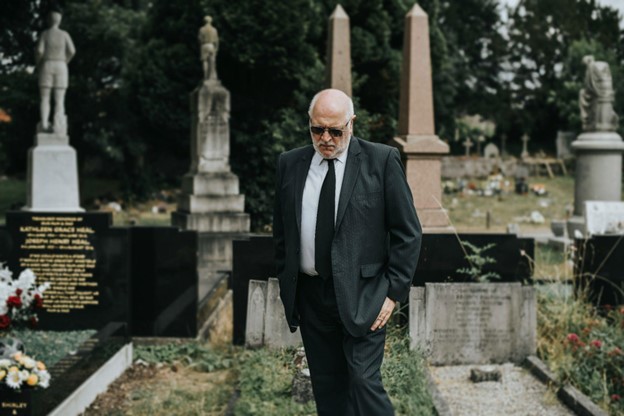- A full-service burial includes coordination with funeral homes, handling paperwork, body preparation, and organizing memorial services.
- Cemetery and burial arrangements involve selecting burial plots and managing logistical details such as grave opening and transportation.
- Memorial and religious services can be personalized with rituals, readings, and songs, tailored to reflect the beliefs and personality of the deceased.
- Grief support and aftercare services provide emotional and practical assistance to families after the burial, helping them navigate the grieving process.
Planning a burial is an emotional and often overwhelming task. With so many decisions to make, from choosing the right funeral home to organizing memorial services, the process can feel daunting. However, understanding the key components of a full-service burial can make everything more manageable. In this blog, we’ll break down the major elements involved in creating a full-service burial, providing clarity on everything from funeral home assistance to cemetery arrangements. By the end, you’ll have a clearer sense of what to expect, helping you make informed decisions and honor your loved one in the best way possible.
Funeral Home Services
The funeral home is often the first point of contact when planning a full-service burial. These professionals handle many essential tasks, helping to ease the burden on grieving families. From processing paperwork, such as death certificates and permits, to coordinating with the cemetery, the funeral home staff ensure everything runs smoothly. Additionally, they assist in preparing the body for burial, offering options such as embalming or cosmetic services to present the deceased according to family wishes.
Beyond logistical support, funeral homes play a vital role in planning memorial ceremonies or viewings. They provide spaces for gatherings and guide families in selecting details like caskets, urns, or keepsakes. Whether the burial follows a traditional format or is tailored to personal preferences, the funeral home’s comprehensive services ensure every aspect is considered, making the entire process more manageable.
Cemetery and Burial Arrangements
Choosing a cemetery and organizing the burial arrangements are pivotal steps in the burial process. Families must decide on burial plot options, which vary based on location and availability. Some cemeteries offer choices such as family plots, single graves, or mausoleums, depending on personal or cultural preferences. Selecting the right option can depend on factors like religious beliefs, budget, and proximity to loved ones.
In addition to plot selection, logistical details must be addressed. Funeral directors typically coordinate with the cemetery to arrange the opening and closing of the grave, transportation of the casket, and scheduling the service. For those opting for a comprehensive burial service, this process is seamless, as all elements are handled professionally, ensuring the burial proceeds with dignity and respect. Families can focus on paying tribute to their loved one without the stress of managing every detail themselves.
Memorial and Religious Services
For many families, the memorial or religious service is one of the most meaningful aspects of a full-service burial. These ceremonies provide an opportunity to honor the life of the deceased while offering comfort to those left behind. Whether the service takes place in a place of worship, the funeral home, or even outdoors, it can be tailored to reflect the individual’s beliefs and values.
Religious traditions often play a significant role in these services, dictating rituals such as prayers, hymns, or readings. For those seeking a non-religious or more personal touch, memorials can include eulogies, poetry, or favorite songs. In both cases, families can collaborate with officiants, funeral directors, or celebrants to design a service that resonates emotionally and spiritually with attendees. This element adds a layer of reflection and community support, helping to celebrate the life lived while providing closure.
Additional Personalization Options
Incorporating personal touches into a burial service allows families to create a lasting tribute that reflects the uniqueness of their loved one. There are numerous ways to personalize the experience, from selecting specific music and readings to arranging for unique floral displays. Some families choose to include visual elements, such as photo boards, slideshows, or memory tables, where personal items that were important to the deceased are displayed.
Funeral homes often offer guidance on various personalization options, whether it’s choosing the perfect color scheme for flowers or coordinating a themed tribute that reflects the individual’s passions or hobbies. Personal touches like these, whether small or grand, can make the burial service feel more intimate and meaningful, helping attendees connect with cherished memories and experiences.
Grief Support and Aftercare Services
The process of grieving doesn’t end with the burial. Many families require additional support to navigate the emotional journey that follows the loss of a loved one. Funeral homes and other organizations often offer grief counseling and aftercare services to help individuals cope in the days, weeks, or even months after the service. These programs may include one-on-one counseling, support groups, or resources to connect families with professional grief therapists.
Aftercare can also involve practical help, such as assisting with closing accounts, managing the deceased’s estate, or providing guidance on commemorative options like creating memorials or headstones. Having access to these resources allows families to focus on healing, knowing that they have support during what can be an incredibly difficult time.
Conclusion
Planning a full-service burial involves multiple components, each playing a critical role in creating a meaningful and respectful farewell. From coordinating with the funeral home and arranging cemetery details to crafting a personalized memorial service, each step helps honor the life of the deceased. Grief support services ensure that families are cared for even after the burial is complete, offering continued guidance during the healing process.
By understanding these elements, families can make informed decisions that not only ease the planning process but also ensure a heartfelt tribute that truly reflects their loved one’s life and legacy.
